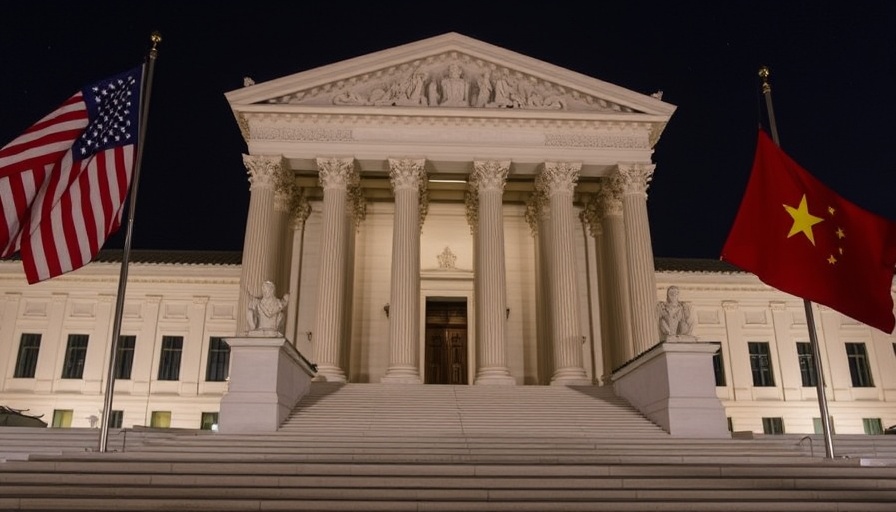
A Federal Court Challenges Trump's Tariff Decisions
A federal trade court has recently blocked President Donald Trump’s ongoing effort to impose expansive tariffs, asserting that his actions exceeded the limitations placed on his power under the 1977 International Emergency Economic Powers Act (IEEPA). This decision arose in the context of what the Trump administration referred to as ‘Liberation Day,’ when a 10% tariff was imposed on various imports on April 2, 2025.
Understanding the Court’s Ruling
The three-judge panel from the U.S. Court of International Trade decided on the matter, siding with plaintiffs who contended that the tariffs contravened U.S. law and were causing economic instability. The court emphasized in its ruling that President Trump’s tariff orders exceeded the authority granted by the IEEPA for regulating imports through tariffs. This judgement is critical as it points to the judiciary's role in assessing the legality of executive actions, particularly in the realm of economic policy.
The Administration's Response: A Quest for Justification
Following the ruling, the Trump administration expressed intentions to appeal the court's decision. Previously, Trump had asserted that persistent trade deficits constituted a national emergency, thus justifying unilateral action without the need for congressional approval. Among the goods affected by the tariffs were imports from key trade partners like Canada, China, and Mexico. In defense of these tariffs, the administration also included arguments relating to illegal immigration and the opioid crisis.
Legal Arguments from the Plaintiffs
Opponents of the tariffs included not only private businesses but also a coalition of states led by Oregon. They argued that the IEEPA does not permit the president to wield tariffs and that the trade deficit failed to meet the threshold described in the law for a national emergency. This lawsuit underscores a growing concern among many that unilateral actions by the executive branch could undermine established economic rules and disrupt market stability.
Historical Context: Emergency Powers in Trade Policy
This court decision is contextualized by the historical usage of emergency powers in U.S. trade policy. The Trump administration cited precedents like the emergency tariffs invoked by former President Richard Nixon in 1971, arguing that such actions have been validated by historical practice. However, critics highlight the necessity of judicial oversight in matters that can significantly impact the economy. The conversation around executive tariffs raises valid questions about the balance of power within the government and the implications for future administrations.
Future Implications for Trade and Economic Policy
The ongoing legal battle surrounding these tariffs may have far-reaching implications for U.S. trade policy and executive authority. Should the appeal uphold the court ruling, it may limit the ability of future presidents to act unilaterally in imposing tariffs, thereby encouraging more robust congressional involvement in trade decisions. This could lead to a more stable economic environment, as decisions would be subject to broader legislative review rather than executive whims.
This case brings to the forefront the vital discussions surrounding economic governance and the role of the government in managing international trade. Keeping abreast of such developments is essential for anyone involved in real estate or the broader economic landscape, as shifts in trade policy can ripple through various sectors, from construction materials to investment opportunities.
 Add Row
Add Row  Add
Add 




 Add Row
Add Row  Add
Add 

Write A Comment